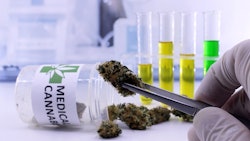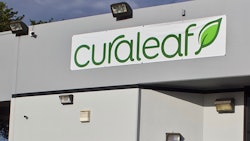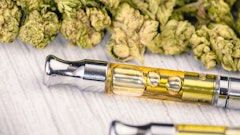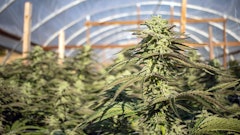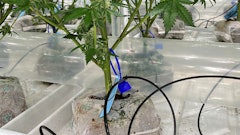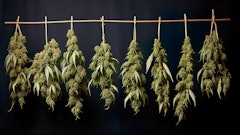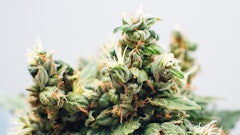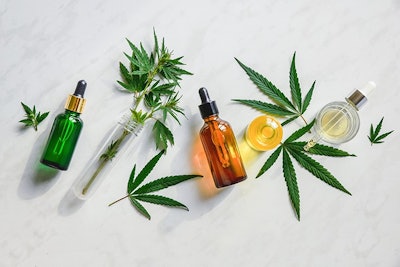
A handful of companies have landed in the crosshairs of the U.S. Food and Drug Administration (FDA) for illegally selling unapproved CBD products intended for use in food-producing animals.
The FDA announced May 26 that it had issued warning letters to four businesses—Haniel Concepts dba Free State Oils, Hope Botanicals, Plantacea LLC dba Kahm CBD and Kingdom Harvest—for violating the Federal Food, Drug, and Cosmetic (FD&C) Act.
“Under the Federal Food, Drug, and Cosmetic (FD&C) Act, any product intended to treat a disease or otherwise have a therapeutic or medical use, and any product (other than a food) that is intended to affect the structure or function of the body of humans or animals, is a drug,” FDA officials wrote in the announcement. “The FDA has not approved any human or animal products containing CBD other than one prescription drug product to treat rare, severe forms of epilepsy in children.”
That prescription drug, Epidiolex, was approved in 2018, and the FDA considers all other CBD products that are intended for use as a drug as unapproved drugs that remain illegal to sell, according to the agency’s release.
RELATED: DEA Greenlights Epidiolex. What’s Next for CBD and the Cannabis Industry?
The companies that received the warning letters claim that their CBD products help “farm animals with stress, anxiety, pain, inflammation [and] injuries,” and provide “support to help manage normal stress, promote a calming effect, maintain a healthy gut, maintain a normal and balanced behavior, maintain healthy joints, [and] maintain a normal inflammatory response,” according to the FDA’s announcement.
These claims, FDA officials said, establish the indented use of the products as drugs.
“Unapproved drugs like these CBD products have not been evaluated by the FDA to determine whether they are effective for their intended use, what the proper dosage might be, how the products could interact with FDA-approved drugs, or whether they have dangerous side effects or other safety concerns,” FDA officials said in the release.
The agency is concerned about these products because of the potential safety risks for the animals consuming them, as well as the lack of data regarding the safety of human food products—such as meat, milk and eggs—that are produced from the animals that have consumed the CBD products in question, according to the announcement.
“After a food-producing animal is treated with a drug, residues of that drug may be present in the milk, eggs, or meat if the animal is milked, eggs are collected, or the animal is sent to slaughter before the drug is completely out of its system,” FDA officials said in the release. “Part of the animal drug approval process includes setting a withdrawal period to establish the minimum amount of time between the last dose of a drug and the slaughter or harvesting of food products from the treated animals. Since CBD is an unapproved drug, the FDA has not had the opportunity to evaluate CBD residues in food or to establish an appropriate withdrawal period.”
The FDA also cited concerns about the manufacturing processes used in producing the products.
“In addition, the manufacturing processes of unapproved CBD drug products have not been reviewed by the FDA as part of the human or animal drug approval processes,” agency officials said in the announcement. “The FDA has received reports of some CBD products containing contaminants such as pesticides and heavy metals, thus introducing additional concerns for the use of CBD products.”
RELATED: FDA Issues Warning Letters to Companies Claiming Their CBD Products Can Treat COVID-19
FDA officials also worry that “consumers may postpone seeking professional medical care for their animals, such as getting a proper diagnosis, treatment and supportive care, because they are relying on unproven claims associated with unapproved CBD products,” according to the release.
The four companies that received the warning letters also sell CBD products meant for human consumption, as well as “adulterated human foods” that have been marketed as dietary supplements, including oils, creams, extracts, salves and gummies, the FDA said in its announcement.
The agency has requested responses from the businesses within 15 working days outlining how they will address the violations, according to the release. Failure to respond could result in legal action, such as product seizure or injunction.
The FDA has issued dozens of warning letters over the past several years to CBD companies, and officials recently set their sights on the delta-8 THC industry, issuing the first five warning letters earlier this month to companies that the agency claimed were marketing unapproved new drugs, misbranding their wares and unlawfully adding delta-8 to food products.
Jonathan Havens, co-chair of the Cannabis Law Practice and the Food and Beverage Practice at Saul Ewing Arnstein & Lehr, told Cannabis Business Times earlier this month, regarding the FDA’s warning to the delta-8 companies, that the warning letters serve to weed out bad actors in the cannabis and hemp industries.
“While this is not a good look for the industry, I do think that it will make the industry better in that it will shine a light on whose marketing practices are unsavory and whose are responsible,” he said. “I think there could be an upside here."








